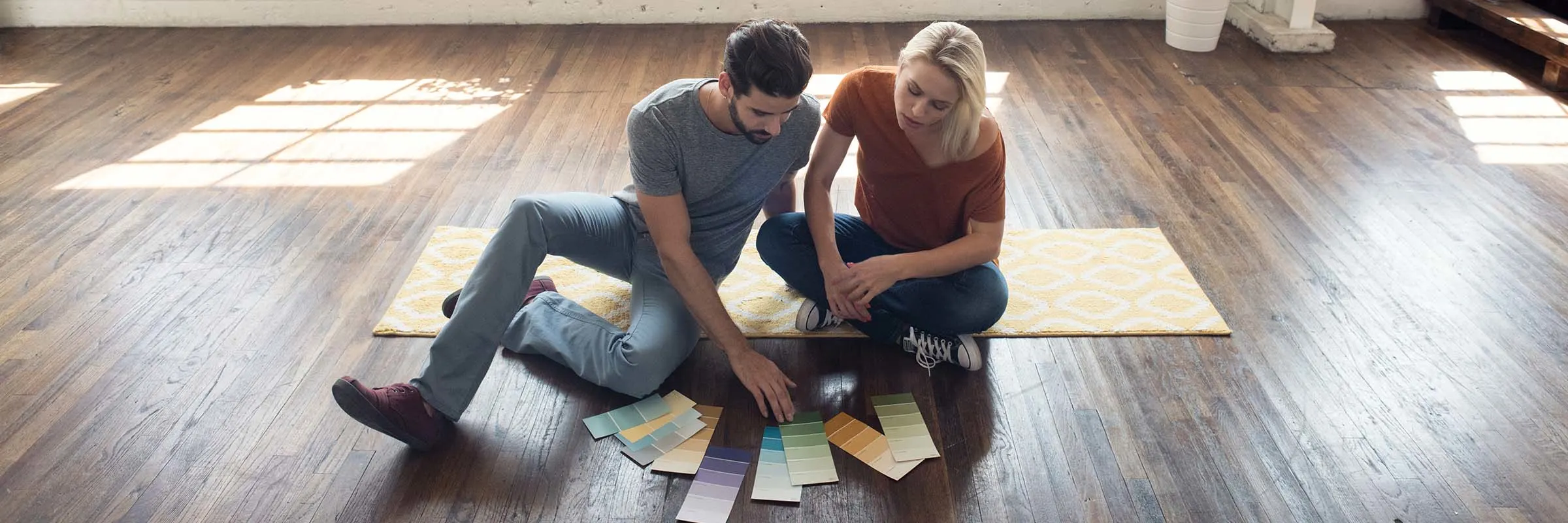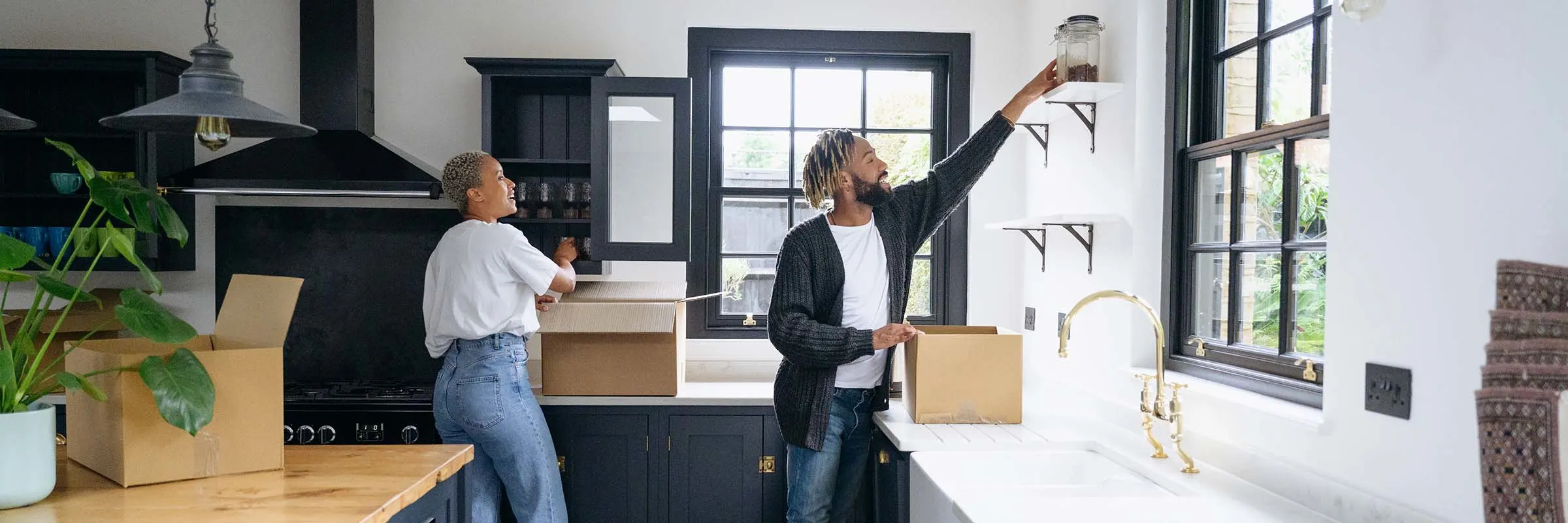Ready to take your first steps toward a new home? It's important to know there are many resources to help you proceed with your homebuying journey. We'll share some national and state programs designed to help homebuyers qualify for a mortgage and move into the home they want.
What are homebuyer programs?
These programs were designed to support and encourage homeownership, especially for people who may not be able to afford a home without additional financial support, including those with lower income or credit scores.
Read more: 3 things to consider as you prepare to buy your first home.
By providing assistance for both down payments and closing costs, first-time homebuyer programs can reduce upfront costs and increase the chance to purchase and own a home.
Types of homebuyer programs
The programs and support available to you will depend on what state and/or city you live in, but there are also federal and national programs dedicated to providing first-time homebuyer assistance. Other factors that can impact whether you qualify include the lender you work with and the program's specific requirements.
As you work through the homebuying process, be sure to check out the mortgage loan options below. Keep in mind the following information is not a comprehensive list of qualifications and may change.
1. Fannie Mae
The Federal National Mortgage Association (commonly known as Fannie Mae) offers a HomeReady® mortgage program that works with local lenders to offer loans to borrowers with lower incomes.
HomeReady loan qualifications :
3% down payment
Income must be no more than 80% of your area’s median income
If all borrowers are first-time homebuyers, one must complete a homeownership education course
2. Freddie Mac
The Federal Home Loan Mortgage Corporation (usually referred to as Freddie Mac) offers a HomeOne® mortgage that is similar to Fannie Mae’s HomeReady program in terms of criteria, but there are no income or geographic limits.
3% down payment
At least one borrower must be a first-time homebuyer
All borrowers must occupy the home as their primary residence
If all borrowers are first-time homebuyers, one must complete a homeownership education course
3. Federal Housing Administration (FHA)
An FHA loan is a mortgage insured by the Federal Housing Administration (FHA) that requires a low down payment and low closing costs. Because of the flexibility these loans offer, they can help first-time homebuyers and homebuyers with low or moderate incomes.
3.5% down payment with a credit score of at least 580
10% down payment with a credit score between 500 and 579
Debt-to-income ratio must be below 43%
Need proof of consistent income and employment
Home must be primary residence
4. VA Loan
Backed by the U.S. Department of Veteran Affairs, VA loans often require no down payment or mortgage insurance, making it an appealing choice for those in the military community.
Military connection (active service members, veterans and surviving spouses) with a minimum term of service
Certificate of eligibility (COE)
Must speak with a lender to determine their credit score and income requirements
5. USDA Rural Development
The U.S. Department of Agriculture offers loans to help people buy or build a single-family home with no money down.
Live in an eligible rural area
No credit score requirements but applicants with a credit score less than 640 may need to prove ability to manage debt
Income limitations that vary by region and are based on the number of people in the household
Home must be primary residence
6. Down payment assistance
Here are a few alternative sources:
Grants: Provides down payment assistance as a gift that you won’t have to pay back.
Forgivable loans: Second mortgages that you won’t have to pay back as long as you stay in the home for a certain number of months or years.
Deferred-payment loans: Second mortgages that you don’t have to pay back until you move, sell or refinance your first mortgage.
Matched savings programs: You deposit money into an account and the bank, agency or organization matches the amount deposited.
Keep in mind, qualification for down payment assistance and how much you’re offered is often determined by your household income and credit history. Eligibility can also vary state by state.
What first-time homebuyer programs are available in your state?
In addition to the federal and national programs we discussed, each state has its own programs for homebuyers. Find the program currently available for your state below.
State | Program |
|---|---|
Alabama | |
Alaska | |
Arizona | |
Arkansas | |
California | |
Colorado | |
Connecticut | |
Delaware | |
Florida | |
Georgia | |
Hawaii | |
Idaho | |
Illinois | |
Indiana | |
Iowa | |
Kansas | |
Kentucky | |
Louisiana | |
Maine | |
Maryland | |
Massachusetts | Massachusetts Department of Housing and Community Development |
Michigan | |
Minnesota | |
Mississippi | |
Missouri | |
Montana | |
Nebraska | |
Nevada | |
New Hampshire | |
New Jersey | |
New Mexico | |
New York | |
North Carolina | |
North Dakota | |
Ohio | |
Oklahoma | |
Oregon | |
Pennsylvania | |
Rhode Island | |
South Carolina | |
South Dakota | |
Tennessee | |
Texas | |
Utah | |
Vermont | |
Virginia | |
Washington | |
Washington, D.C. | |
West Virginia | |
Wisconsin | |
Wyoming |
Home is where the heart is
The journey to homeownership is a personal one and can play a significant role in you and your family’s lives for years to come. It’s a big decision and often a significant investment. Homebuyer programs can make it possible, helping you find a home you love and that serves your needs, while maintaining your financial health.



